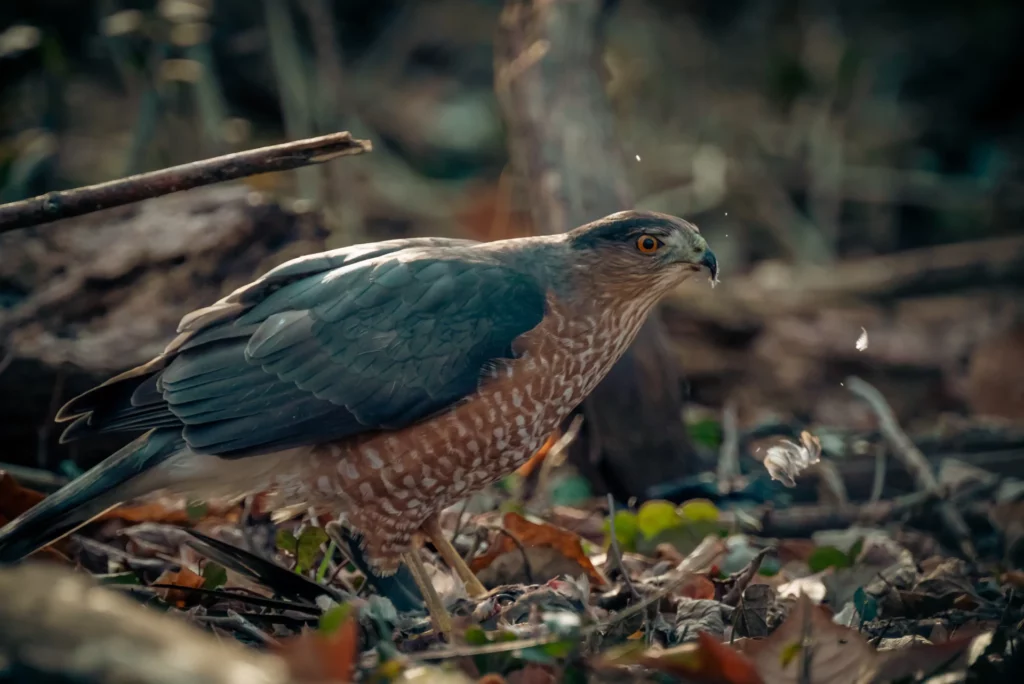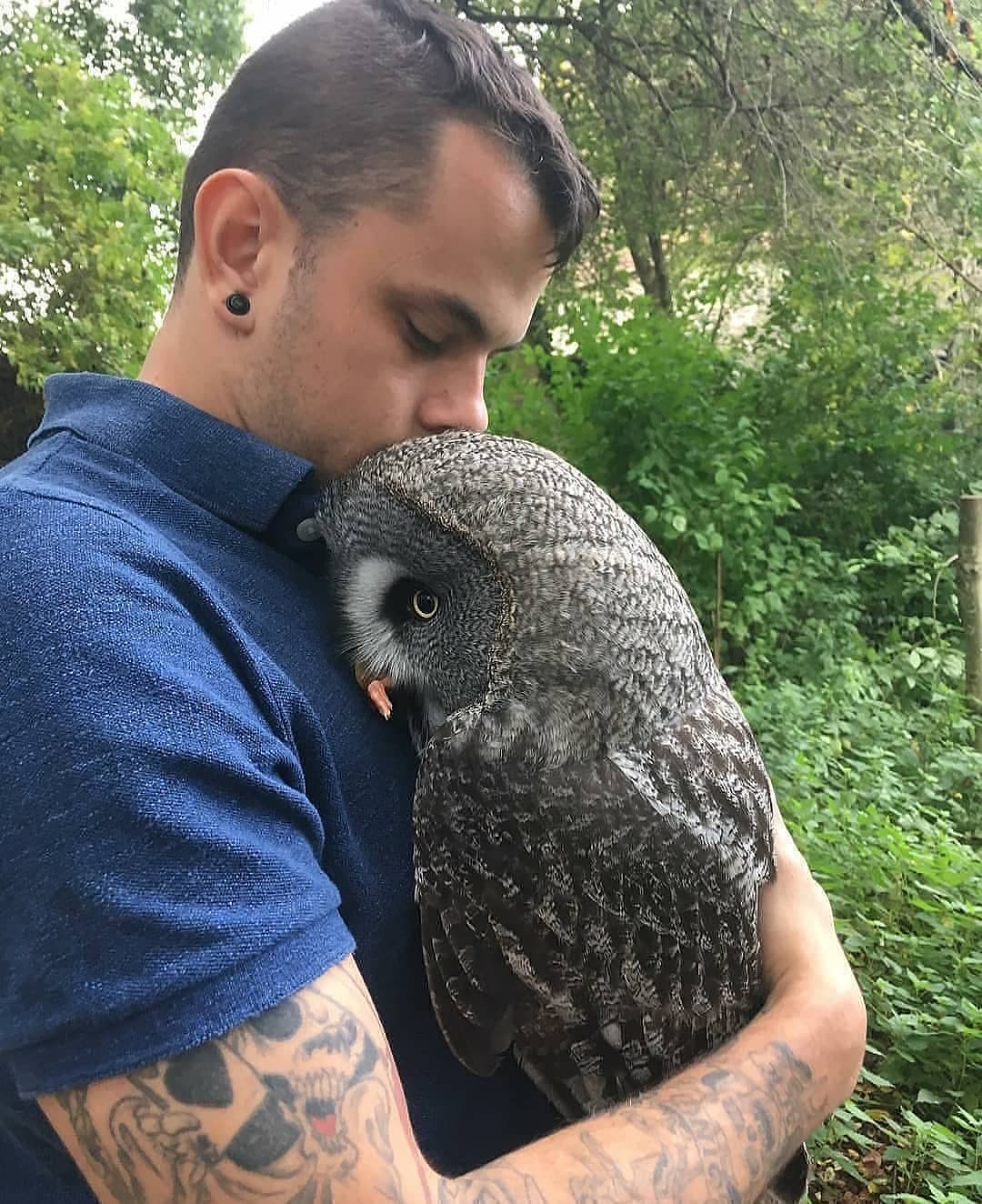Birds are natural wonders, and they come in all sizes and shapes. Hawks are one of these fantastic creations that soar through the sky and hunt. You may have also seen them lurking near other bird nests.
But why do the Hawks do that? Do hawks eat baby birds? These are some concerning questions. Sadly, yes, hawks eat baby birds if they want to because they’re carnivores. Baby birds are a good source of protein and are technically defenseless at that stage.
We know this is upsetting for many bird lovers, but we need to understand that it’s part of nature. However, we can help you protect your backyard birdies!
Do Hawks Eat Little Birds?
Hawks are birds of prey with a unique diet that contains small mammals and even little birds. So, hawks do eat little birds if they’re very hungry and can’t find a suitable food source nearby.
However, before a hawk decides to hunt little birds, there are many other food sources they’ll go after first, like rabbits, mice, insects, etc. So, it’s rare to see hawks hunting mainly small birds.
Moreover, hawks love living in open areas as it helps them locate their prey more easily. Then they can just swoop in and grab their prey with their sharp talons.
Besides, you’ll be surprised to know that hawks can actually live a few weeks without food if there’s scarcity. But remember, hunting mammals and birds is all part of a hawk’s wild nature, and it also keeps the ecosystem in balance.
What Kind of Hawk Eats Small Birds?
Now you may be worried about every hawk you see flying in the sky, but don’t be alarmed. Not all Hawks enjoy eating baby or small birds as they don’t have enough meat on them.
You’ll usually notice Sharp-shinned Hawks, Cooper’s Hawks, or Northern Goshawk Hawks hunting small birds, as they’re medium-sized birds and prefer to hunt smaller prey.
So, you won’t see any large hawks in your backyard or soaring over your bird feeders as they prefer rabbits, snakes, rats, etc., more than small birds. But there’s always a chance!

As we humans began to inhabit a lot of the wildlife areas, hawks have learned to make way for them. They know they will find food in someone’s backyard, whether a squirrel or a bird, because we love setting out bird or squirrel feeders outside.
Moreover, as hawks are losing their natural habitat, their food sources are becoming scarce, and they don’t get to hunt like before. So, they will roam around our houses with bird feeders for easy prey.
Why Do Hawks Eat Baby Birds?
Research says baby birds make up over 90 percent of what a sharp-shinned hawk eats, and the remaining 10% includes insects, frogs, and lizards. But they’re not the only ones whose diet includes small or baby birds. Cooper’s Hawks are medium-sized birds who, 50% of the time, hunt and feed on baby birds.
But why do hawks eat baby birds more? It’s actually a question to think about. Although the question is deep, the answer is quite simple. There are mainly two factors playing into this scenario:
- Baby birds don’t learn to fly until 3 weeks, making it easier for hawks to hunt. Hawks also don’t have to waste any of their energy and time hunting down adult birds who can fly, and in this way, they get to hunt more.
- Baby birds have a short wingspan because they’re just babies! Wings are a bird’s means to fly away to safety when needed, and when young, they don’t grow them and can’t defend themselves. So, they become an easy meal for hawks.
How Do You Protect Baby Birds from Hawks?
If you have bird nests or baby birds in your backyard, hawks are a big concern; we understand that. Do you know what you need? Preventive measures to keep the Hawks away!
As bird lovers ourselves, we have tried several of these tips, and they worked well to save our little birdies and also not harm the hawks.
However, you have to understand that not every tip will work for you, so understand your home and then move forward with these.
Provide Shelter
You know, when we got bird feeders, we made sure to plant many dense shrubs and berry bushes in our backyard. We already had a dense tree, so we didn’t worry much. We’re telling you this because these are the best shelter you can provide the birds when faced with danger.
If you have bird feeders, make sure you provide shelter for the birds to hide in case of a hawk attack. Moreover, the feeder shouldn’t be more than ten feet away from the bushes; otherwise, the small birds won’t have much time to take shelter.
Additionally, when you plant fruit trees or shrubs, you automatically provide food and shelter together for the birds.
Get Cage or Shield Feeders
Cage feeders help the birds enjoy a meal without worrying about being prey to the hawks. You can find many beautiful and safe cage feeders in stores that you can install in your backyard.
But if you already have a bird feeder, you must get handy and build a safety net around the feeder to protect the birds.
Moreover, you can shield your bird feeders using a gazebo, tree branches, umbrella, etc. It will protect the birds while they eat and also prevent hawks from noticing their prey.
Don’t Practice Ground Feeding
Hawks usually attack doves, pigeons, sparrows, or quails because they’re somewhat an easy target. As these birds eat from the ground, they don’t usually have a place to hide immediately when a hawk swoops in.
Don’t panic because you can easily avoid it. Make birdhouses and avoid low-laying bird feeders! This will definitely help you keep your lovely birds safe.
Prevent Hawk Perching
We often see hawks perching on branches and hunting in places with squirrels and mice. So, you should avoid leaving broken and dead branches in your yard, and if you have a feeder, don’t keep it out wide open.
Moreover, you can also try removing feeders for a few days or weeks to lower the number of rodents and birds visiting your place. It will eventually help the small birds be safe in the wild.
Once you stop seeing the hawks, you can put your bird feeder again, but in a shaded area, away from the hawk’s eye.
Protect Your Windows
Even with all these tips, hawks attacks can happen, so you need to be prepared. The little birdies will panic, and this may cause them to collide with your windows. Don’t worry; they’ll be fine but will remain stunt, benefiting the Hawks.
We know you don’t want that, so research ways to protect birds from your windows. We used decals which do work fine, but there are many other effective ways to provide a layer of protection for both you and the birds.
Conclusion
Hawks are natural predators, and it does make our hearts sad to know that they will eat baby birds, among other food sources. However, we know this is part of nature, and we shouldn’t do anything to harm the Hawks either.
However, we hope you learned how you can keep the little birds safe when they’re feeding in your backyard. These tips have helped us a lot, and we’re happy to share them with you. Hope you have an amazing day!

